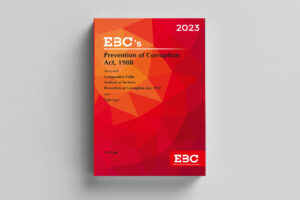Calcutta High Court: In a criminal revision petition challenging the impugned order which denied the petitioner’s request for discharge under Section 239 of the Criminal Procedure Code, 1973 (CrPC) in relation to case under the Prevention of Corruption Act, 1988, a single-judge bench comprising of Rai Chattopadhyay,* J., set aside the trial court’s order and quashed the FIR, due to lack of adequate evidence regarding the petitioner’s income and asserting the abuse of the court’s process.
Factual Matrix
In the instant matter, a FIR dated 19-08-2011 was filed by the Deputy Superintendent of Police, CID, West Bengal, alleging disproportionate assets of the petitioner. The petitioner’s residential premises were searched in connection with another police case, leading to the seizure of cash and keys. The complainant alleged incorrect declarations in the petitioner’s affidavit before the Chief Electoral Officer, West Bengal, regarding his assets. The investigation resulted in a charge sheet dated 11-12-2013, accusing the petitioner of offenses under Sections 13(1)(e) and 13(2) of the Prevention of Corruption Act, 1988.
The petitioner, disputing the evidence against him, filed a discharge petition under Section 239 of the CrPC, 1973. The trial court, vide order dated 24-11-2015, rejected the petitioner’s discharge plea as strong prima facie evidence in the FIR and documents were found, indicating the need for a full-fledged trial. The trial court held that the specific points raised by the petitioner required determination through a trial, dismissing his discharge request. Aggrieved by the impugned order dated 24-11-2015 passed by the Special Judge, the petitioner preferred the criminal revision petition challenging the same.
Grounds for Revision
The petitioner challenged the impugned order, arguing that the allegations are unfounded, unsubstantiated, and motivated. The petitioner contended that the investigating authorities failed to consider the daily allowance earned during the ‘check period’, leading to a perfunctory investigation and malicious intent. The petitioner relied on documents indicating substantial daily allowances received during his tenure as a Member of the Legislative Assembly (MLA), which were omitted from the assessment of his assets.
State’s Contentions
The State contended that the trial court’s presumption of guilt and strong suspicion justify framing charges. The State argued that the Court should rely solely on records and documents produced during the investigation, without considering extraneous defense documents. Citing precedents, the State asserted that the Court cannot conduct a mini-trial at this stage and that Section 482 of the CrPC should not be invoked to quash FIR or proceedings.
Court’s Assessment
The Court considered the trial court’s rejection of the discharge plea and examined the documents submitted by the petitioner, emphasising on the importance of fair investigation and the constitutional right to a fair trial. The Court stated that “a fair investigation is a sine qua non for a fair trial and thus for the ends of justice. A right to a fair investigation is not only a constitutional right but a natural right as well. Fair investigation is mandated under Articles 14, 21 and also 39 of the Constitution of India. It is a part of Constitutional right guaranteed, hence the minimum requirement of rule of law is that the investigation must be fair, transparent and judicious.”
The Court emphasised on the need for active consideration by the magistrate while framing charges or discharging the accused under Sections 240 and 239 of the CrPC, 1973. The Court acknowledged the petitioner’s reliance on unimpeachable documents showing daily allowances, and their omission from the investigation raises doubts about the charges.
The Court criticised the investigation for its failure to collect evidence regarding the petitioner’s actual income during the ‘check period,’ causing a substantial infirmity in the allegations and a lack of investigation into his legislative assembly daily allowances. The Court observed a gross infirmity in the foundation of the allegations, rendering the trial court’s order unsustainable.
The Court asserted that the court’s inherent power under Section 482 of the CrPC should be exercised to prevent abuse of the court’s process and secure the ends of justice. The Court set aside the impugned order, and the petitioner was discharged from the case. The FIR and subsequent orders were quashed under Section 482 of the CrPC.
“The power under Section 482 Cr.P.C, is inherent in the Court to do the right and to undo a wrong in course of administration of justice on the principle “quando lex aliquid alicui concedit, concedere videtur et id sine quo res ipsae ess non potest” … therefore the Court should not hesitate and should not make itself handicap in exercising such an extraordinary power in an appropriate case where it is required for the Court to do so in the interest of justice and fair play, to prevent abuse of Courts process and to secure the ends of justice.”
Court’s Decision
The Court allowed the criminal revision, set aside the trial court’s order, and discharged the petitioner from the case while quashing the FIR and subsequent proceedings, based on a significant gap in the investigation regarding the petitioner’s income, inadequacy of evidence and the failure to consider the petitioner’s legislative assembly daily allowances during the ‘check period’.
[Susanta Ghosh v. State of W.B., 2024 SCC OnLine Cal 792, order dated 30-01-2024]
*Judgment by Justice Rai Chattopadhyay
Advocates who appeared in this case :
Mr. Bikas Ranjan Bhattacharrya, Ld. Sr. Adv., Mr. Manoj Malhotra, Mr. Mainak Ganguly, Counsel for the Petitioner
Mr. Saswata Gopal Mukherji, Mr. Rudradipta Nandy Ld. APP, Mr. Ranabir Roy Chowdhury, Mr Mainak Gupta, Counsel for the Respondent/State










